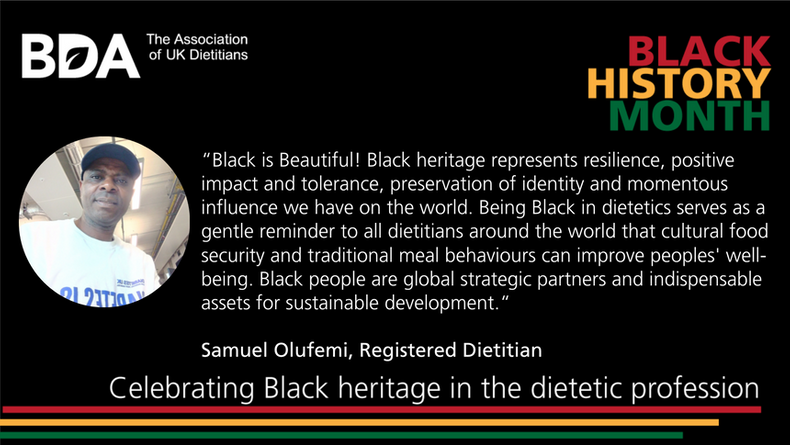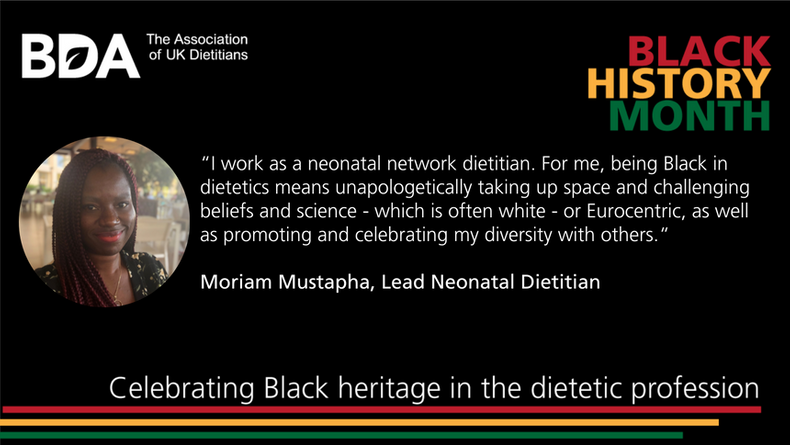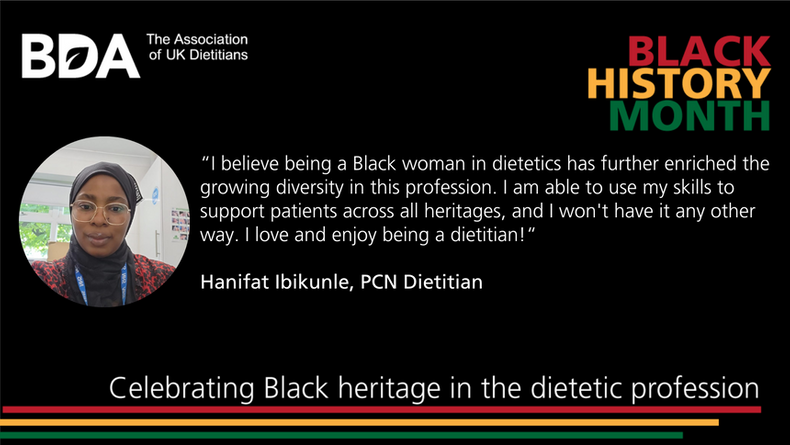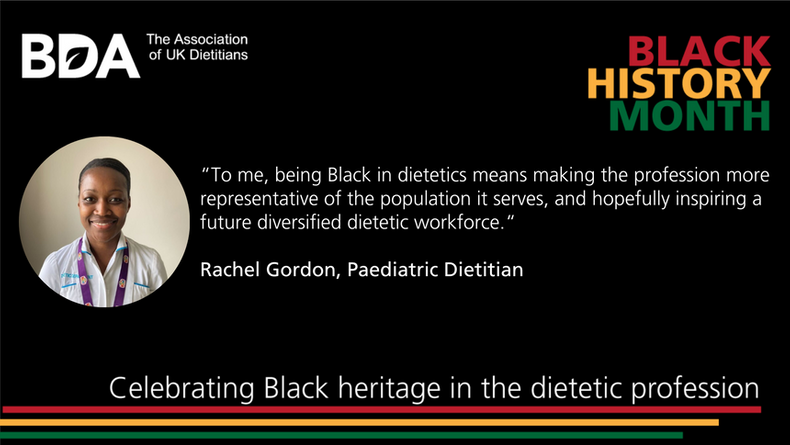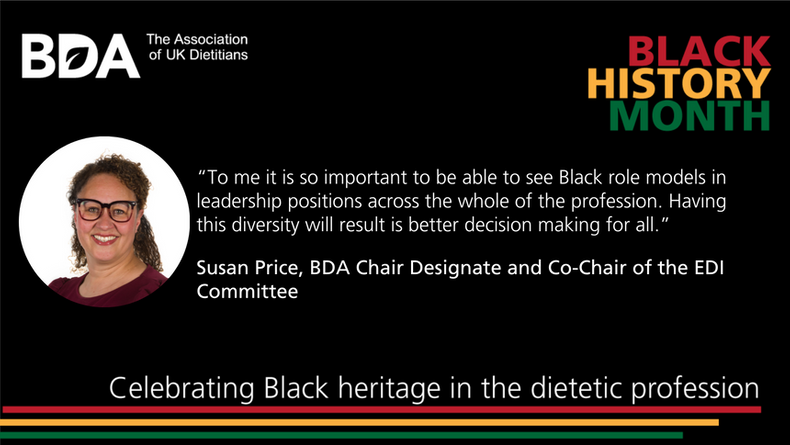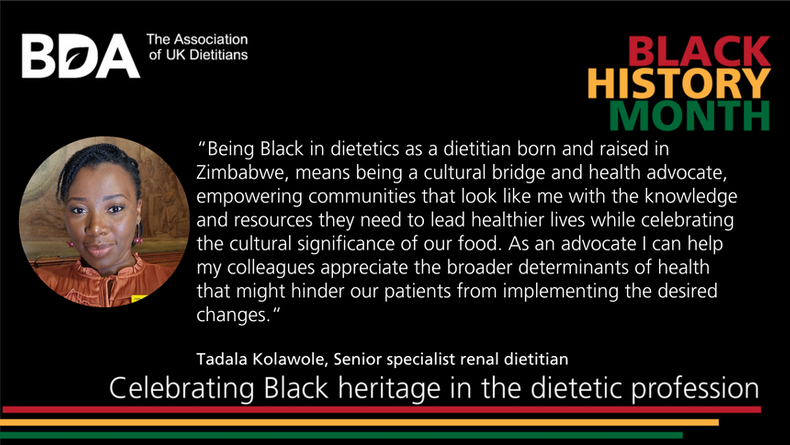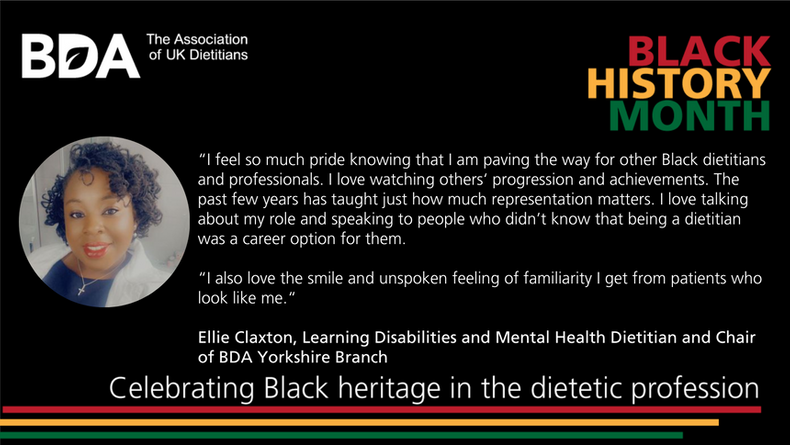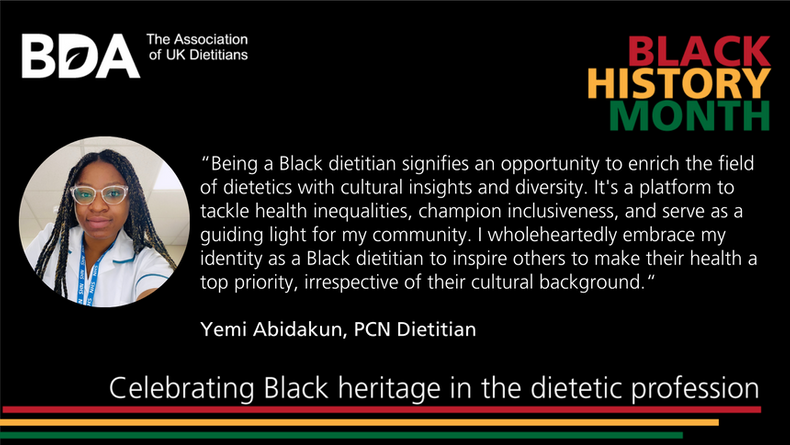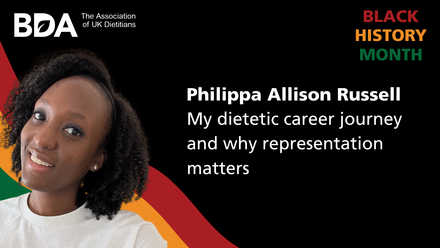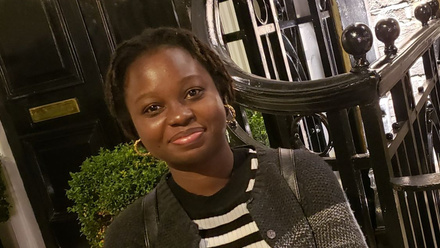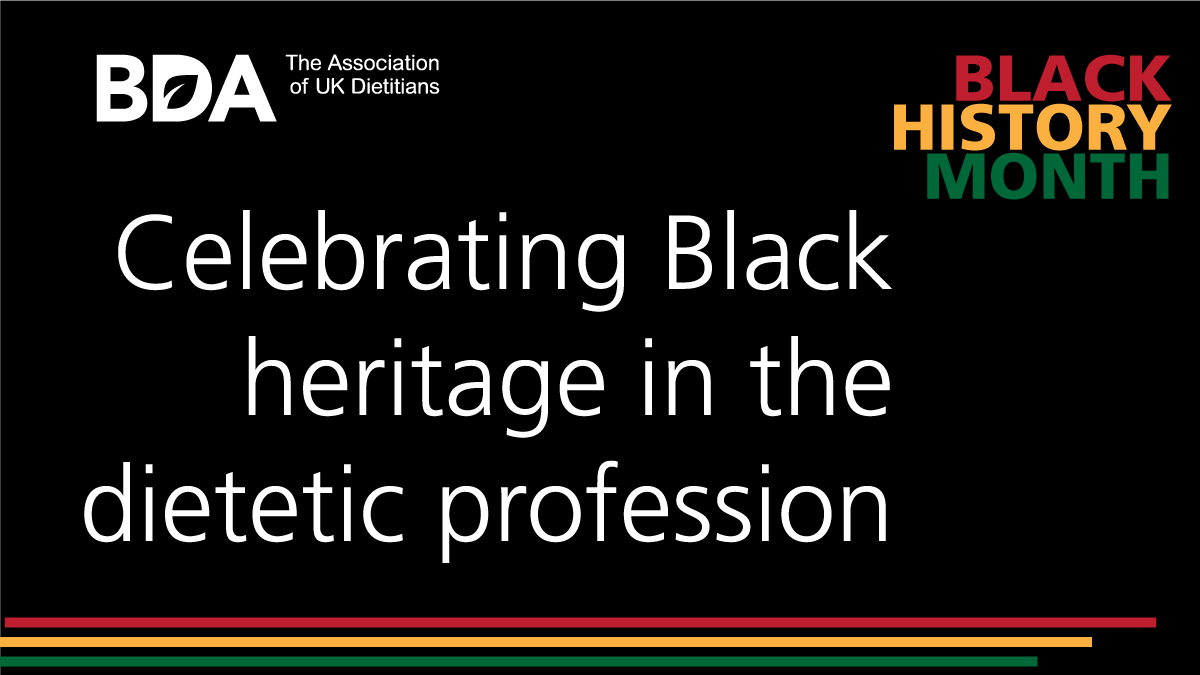
What is Black History Month?
Black History Month takes place every October in the UK as a way of celebrating the work of Black people throughout history. The theme for Black History Month 2023 is "Saluting our Sisters" and as 91% of the dietetic workforce is female (HCPC diversity data, March 2023) this is a brilliant opportunity to highlight the work of Black female dietitians.
Black History Month has particular significance this year as we commemorate 75 years since the arrival of Empire Windrush and the NHS’ formation.
Health Minister Aneurin Bevan, embarked on establishing the National Health Service in 1948. For the first time healthcare was available for free, regardless of income.
After the War there were serious labour shortages, so workers from the Caribbean and Ireland were recruited to fill the gaps in the NHS. Later, workers from South Asia and Africa were recruited too. These workers were critical to the formation of the NHS.
Back in June, as part of the 75-year celebrations, Dr Melrose Stewart MBE wrote a blog for NHS England sharing the achievements of allied health professionals (AHPs) from the Windrush era. This included honouring the work of four dietitians:
- Alexa Scott
- Barbara Hamilton
- Siburnie Ramharry
- Yvonne Batson
As Dr Melrose Stewart MBE notes, with a lack of records from the time there will be lots more dietitians that we are unable to mention and thank. This month, we celebrate and thank all those that have devoted their lives to the NHS.
You can read her full article here.
What does our EDI Committee say?
Diversity in dietetics is crucial at all times and Black History Month is an opportunity for us to really reflect and educate ourselves on why a diverse approach to nutrition and dietetics, which is inclusive and culturally sensitive is needed. Embracing a variety of perspectives and backgrounds and including more dietitians from Black and other minority communities, enhances the profession's ability to address the diverse needs of the population we serve.
Diverse dietitians bring unique insights, allowing them to understand the dietary preferences, traditions, and challenges specific to various ethnic communities, including the Black community. This cultural competence fosters trust and openness between healthcare professionals and patients, leading to more effective and personalised dietary advice and interventions.
Representation really does matter. Having dietitians who reflect the diversity of the community they serve helps us work towards closing the gap in healthcare inequalities. Increased representation also challenges stereotypes and promotes inclusivity, leading to a supportive environment where everyone feels understood and valued.
Furthermore, diverse dietitians can actively contribute to research, policy-making, and education, ensuring that these aspects are sensitive to cultural differences and inclusive of diverse perspectives. This results in a more comprehensive understanding of nutrition-related issues, leading to better-designed interventions and improved health outcomes within minority communities.
In essence, embracing diversity in dietetics not only honours the rich culture of our society but also significantly enhances the effectiveness and impact of healthcare services. By encouraging and supporting more dietitians from Black and other minority backgrounds, the profession can better address the unique dietary needs of diverse communities, promoting health and well-being for all.


